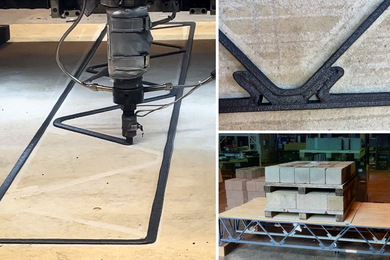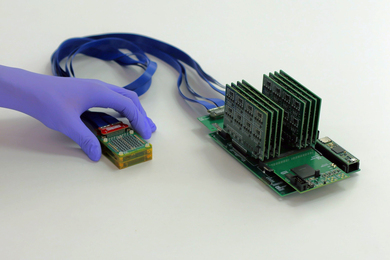Today, the Tech published the following letter from MIT President L. Rafael Reif concerning a recent court action taken by MIT.
Dear Editors,
On Friday, July 19, I received a concerned email from a recent MIT graduate I know well, who suggested I write a letter to the Tech explaining to the MIT community a court action recently taken by MIT. I wrote back to tell her that I thought that was a good idea.
On Thursday, July 18, in the US District Court in Washington, DC, MIT filed a motion to intervene in a pending Freedom of Information Act (FOIA) case in which a reporter is seeking the disclosure of US Secret Service documents related to Aaron Swartz.
From the time of that filing, there has been reporting and conjecture on blogs and in social media that MIT is trying to block the release of these documents — and that MIT is taking too long to release its promised report by Professor Hal Abelson on MIT’s involvement in “US v. Aaron Swartz.” I’d like to address those two concerns.
In March, I wrote to the MIT community describing our plan to release, at the same time we release Professor Abelson’s report, a group of documents related to the Swartz case, but with two kinds of information removed: the names of and identifying information about individual employees, and information that could compromise the security of the MIT network. As you will recall, in the volatile atmosphere of that time, we had seen a pattern of harassment and personal threats against people at MIT, as well as attacks on our computer system; my responsibility to protect the safety of our employees and our network was, and remains, very real. In that same letter, I also explained that once Professor Abelson completed his report, we would also release these documents to the public.
We intervened in the FOIA case for the simple reason that MIT feels an obligation to ensure that its employees and its network are protected under the legal standards of FOIA, and MIT is best situated to identify information that would compromise its employees’ privacy or its network security if released.
We are not trying to stop the public release of these documents. We are simply asking for the opportunity to look at them carefully so we can be confident that the proper redactions have been made, so that releasing them does not pose a risk to MIT employees who became involved in the case in the course of simply doing their jobs. To avoid unduly delaying the FOIA lawsuit, MIT asked the Court to schedule an expedited hearing on its request and proposed a process for quick review. JSTOR filed a similar request with the Court on Friday, July 19.
In the end, what matters are the facts — and it is the facts that Professor Abelson is working hard to bring to light. I have allowed him all the time he needs to complete the report to his standards. He has undertaken an important project. We are on track to release the report this summer.
For those who wish to learn more about our recent court action, this MIT News story offers a useful description of what we did and why: /newsoffice/2013/mit-files-motion-in-foia-request-0718.html
Sincerely,
Rafael Reif
Dear Editors,
On Friday, July 19, I received a concerned email from a recent MIT graduate I know well, who suggested I write a letter to the Tech explaining to the MIT community a court action recently taken by MIT. I wrote back to tell her that I thought that was a good idea.
On Thursday, July 18, in the US District Court in Washington, DC, MIT filed a motion to intervene in a pending Freedom of Information Act (FOIA) case in which a reporter is seeking the disclosure of US Secret Service documents related to Aaron Swartz.
From the time of that filing, there has been reporting and conjecture on blogs and in social media that MIT is trying to block the release of these documents — and that MIT is taking too long to release its promised report by Professor Hal Abelson on MIT’s involvement in “US v. Aaron Swartz.” I’d like to address those two concerns.
In March, I wrote to the MIT community describing our plan to release, at the same time we release Professor Abelson’s report, a group of documents related to the Swartz case, but with two kinds of information removed: the names of and identifying information about individual employees, and information that could compromise the security of the MIT network. As you will recall, in the volatile atmosphere of that time, we had seen a pattern of harassment and personal threats against people at MIT, as well as attacks on our computer system; my responsibility to protect the safety of our employees and our network was, and remains, very real. In that same letter, I also explained that once Professor Abelson completed his report, we would also release these documents to the public.
We intervened in the FOIA case for the simple reason that MIT feels an obligation to ensure that its employees and its network are protected under the legal standards of FOIA, and MIT is best situated to identify information that would compromise its employees’ privacy or its network security if released.
We are not trying to stop the public release of these documents. We are simply asking for the opportunity to look at them carefully so we can be confident that the proper redactions have been made, so that releasing them does not pose a risk to MIT employees who became involved in the case in the course of simply doing their jobs. To avoid unduly delaying the FOIA lawsuit, MIT asked the Court to schedule an expedited hearing on its request and proposed a process for quick review. JSTOR filed a similar request with the Court on Friday, July 19.
In the end, what matters are the facts — and it is the facts that Professor Abelson is working hard to bring to light. I have allowed him all the time he needs to complete the report to his standards. He has undertaken an important project. We are on track to release the report this summer.
For those who wish to learn more about our recent court action, this MIT News story offers a useful description of what we did and why: /newsoffice/2013/mit-files-motion-in-foia-request-0718.html
Sincerely,
Rafael Reif






